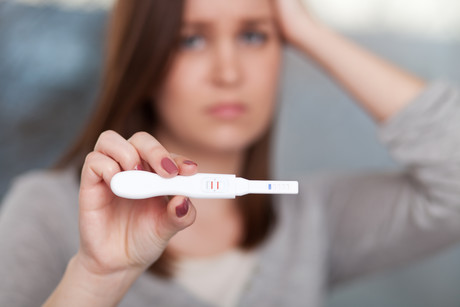Some Vic doctors breaking the law re abortion

A new study has found that a number of Victorian doctors who conscientiously object to abortion could be breaking the law, due to not referring their patients onto another health professional who doesn’t object.
Under Section 8 of the Abortion Law Reform Act 2008 (VIC), health professionals with a conscientious objection to abortion are obligated to refer women to another provider in the same health profession who does not object.
The new research, published in BMC Medical Ethics, also found that these women are having abortions much later than necessary or giving birth to the baby, despite seeking a termination.
The University of Melbourne-led study involved Family Planning Victoria, The Royal Women’s Hospital and Women’s Health Victoria, and reported on 19 qualitative interviews with Victorian abortion experts in 2015.
The researchers found:
- Most doctors would not let moral or religious beliefs impact on their patients, yet all study participants knew of some who did.
- Doctors directly contravened the law by not referring women or by attempting to make women feel guilty, attempting to delay women’s access or claiming an objection for reasons other than conscience.
- Study participants were uncomfortable that whole institutions were allowed to conscientiously object to abortion.
- These factors compromised access to care for some women.
- Use or misuse of conscientious objection by government telephone staff, pharmacists, institutions and political groups was also reported.
Conscientious objection is only deemed ethical if it doesn’t impose an unreasonable burden on the patient in terms of delay, distress or health consequences. Failure to comply with Section 8 may result in professional misconduct charges by the relevant registering authority. In Australia, an estimated 15% of healthcare professionals are conscientious objectors.
Lead author Louise Keogh of the University of Melbourne School of Population and Global Health Centre for Health Equity said while the number of conscientious objectors not meeting their obligations appeared to be small, the impact could be significant, particularly for women in rural and regional areas that were not well serviced.
“We have legal protections to ensure that women’s access is not restricted due to a doctor’s moral or ethical position, but this research suggests that in practice, they don’t appear to be working,” Associate Professor Keogh said. “We need more information about the size and spread of the problem to determine whether education and guidelines can help. There are a number of guidelines already.”
The study’s participants included experts working for organisations that provided surgical and medical abortions. Many reported instances of Section 8 being contravened, and some working in rural areas said such actions were “common”.
Associate Professor Keogh and her co-authors are calling for new guidelines in the Victorian setting to clarify the limits of the clause, and potentially reduce disingenuous claims of conscientious objection. “Further research should address policy approaches and professional and community education initiatives with the capacity to reduce barriers and improve timely access to abortion care,” Associate Professor Keogh said.
Note: Laws on abortion in Australia vary in each state and territory. Abortion is legal in all states and territories bar NSW, where it is legal under specific circumstances. In the states and territories where abortion is legal, the timeframe in which the abortion may occur varies, generally ranging from between 16 and 24 weeks.
$1bn vaccine and antivenom manufacturing facility opens
A $1 billion cell-based influenza vaccine and antivenom manufacturing facility has opened in...
National concussion clinical guidelines now available
The first Australia- and New Zealand-specific guidelines for all forms of concussion — from...
Doctors criticise "risky prescribing agenda"
The AMA and RACGP have expressed disappointment in the Pharmacy Board of Australia's...

![[New Zealand] Transform from Security Awareness to a Security Culture: A Vital Shift for SMB Healthcare — Webinar](https://d1v1e13ebw3o15.cloudfront.net/data/89856/wfmedia_thumb/..jpg)
![[Australia] Transform from Security Awareness to a Security Culture: A Vital Shift for SMB Healthcare — Webinar](https://d1v1e13ebw3o15.cloudfront.net/data/89855/wfmedia_thumb/..jpg)




